RAJAT KAPOOR had already spent a lifetime finding his feet and captivating viewers in theatre and parallel Indian cinema, before he appeared as sweet Mahesh Uncle in ‘Dil Chahta Hai’, or the nauseating Tej Puri in ‘Monsoon Wedding’, or the ambiguous Ranjeet Thadani in ‘Bheja Fry’. The accidental actor is – first and foremost – a passionate, accomplished filmmaker, whose 25-year-long post-FTII struggle seems to have culminated in the creation of his finest work, Aankhon Dekhi, in 2014.
But has that struggle really ended? Does it EVER end?
Ex-Viacom18 employee and upcoming filmmaker RUKSHANA TABASSUM sits down for a long inquisitive chat with Mr. Kapoor about all things Aankhon Dekhi, FTII, theatre, films, indies, stars and life.
How did ‘Aankhon Dekhi’ happen? It was well documented that the journey was difficult…
RK: Usually, it’s the same routine – this was no different – at least with the films I try to make. One keeps meeting producers, everyone is interested, but nobody really wants to put their money where their mouth is. Some of them are genuinely interested, but market considerations and feasibility weigh too heavy on their minds. And also, most of them only know one way of working: To get X actor, and X actor charges so much money – that’s the only way they understand. If you have a Saif Ali Khan, you can make a film for 40 crores, if you have a Shahid Kapoor and so on – depending on what these stars have done in the last three years and how their films have fared. So when you go to them with a script that doesn’t have stars and isn’t part of the mainstream milieu, they just don’t know how to react – even if they like it – they don’t understand what to make of it, or how to recover money from it.
So it’s not a new thing for me; Mithya was written in 1998, and I finally made it in 2006. It’s normal – 8 years, scripts keep waiting, till the time is right for it, I suppose. I was going through the same process with Aankhon Dekhi. I had it for 2-3 years, kept meeting people, they liked it but – you know. And one day, I finally tweeted saying: to hell with all the producers; I’m going to start a new play instead. So I get a tweet back from a gentleman called Manish Mundra saying, “Sir, I’m a big fan. I’ll produce your film.” So I obviously tweeted back thinking it was a joke, and that he couldn’t possibly be serious about such a thing on twitter; gave him my phone number just in case. He called me, telling me that he is based in Dubai and Nigeria, and asked about the budget. 4 crores, I said. No problem, I’ll do it.
I pleaded with him not to joke around, and that this has happened to me way too often; people agree and just disappear. At least read the script, how can you just say ‘yes’? He read it, came to Mumbai to meet me – very nice man – and in the intervening few weeks, he had seen all my interviews and had learned everything about me. All he said was, “Sir, you don’t have to prove yourself to me. I have to prove myself to you. Let’s sign the dotted line.” And boom! Just like that, Aankhon Dekhi had a producer.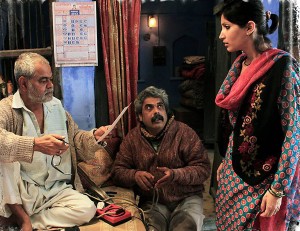
Have things been easier after you made the film? For your next script?
RK: Not really. Things only become easier when your film makes money. And Aankhon Dekhi, unfortunately, did not make money. So, back to the same old shit. Things had become easier for me just for a brief while, around 2 or 3 years after Bheja Fry. Because the film made so much money, and was made on a shoestring budget, producers at that time sat up and thought – this is a great business model: make a film for 50 lakhs or 1 crore, and it has the potential to make up to 9 crores; a huge return on investment. For two years, life was relatively easier in terms of work opportunities; producers were actually chasing me for those few years (laughs). So you live like you’re in a dream – Wow, I’ve arrived! And boom, it crashes, and you’re back to square one. Which is fine, really. I’m not complaining. It does get difficult. It does – because you WANT to make a film so bad. But this is something one has chosen for oneself. When I chose this, I knew very clearly what the consequences would be. It was never going to be easy. We all know that. No point being bitter about it. But it gets difficult…because you meet so many liars, because you’re led to expect and hope – and that’s the worst part. It’s happened this year too – I’ve signed something, and one week before the first installment, they disappear. You start hoping and visualizing your shoot in two months, you start booking dates, and then the carpet is pulled out from under your feet.
Other than that, I think it’s the process of filmmaking. The biggest and most hurtful wait is between films. When one is making a film, it’s absolute joy, whether you’re shooting, editing or doing sound – it’s all a big high. Or even showing your film. Last night, we had a screening of Aankhon Dekhi at The Hive, and what a pleasure it was to see it with an audience. I’ve seen it 50 times with audiences all over the world and within India. And the love I get out of it – I can’t even begin to tell you – I haven’t gotten as much love in my life as I did for Aankhon Dekhi. People just connect at various levels, or find depth in it; they just come out and hug me. It’s really very nice and priceless, and I’m very grateful for that…
Which reminds me, what are you making next?
RK: I have 3 scripts, which have been ready for a year. I’m meeting people, armed with the scripts, with a ready strategy: Okay, you don’t like this one? Try this one. No? Try the third one. A lot of them are interested, but nothing is finalized yet. I want to make these three films in the next three years, but I don’t know which one will get made first. But I hope – I hope something cracks soon.
Are they in a similar zone as Aankhon Dekhi?
RK: No, they’re all very different. One of them is called ‘Mathura Mehta Tathaiya’ – about a small troope in Mathura trying to do a Shakespeare play. Another one is a pure generic gangster film. The third one, for which nobody will give me money, is completely mad – it’s over the top and crazy. It’s called ‘RK RK’; I have to act in it because of the name, of course.
Of course. So after Aankhon Dekhi, has it been easy to pitch Mathura?
RK: No. (thinks) No, not at all. Like I said, if Aankhon Dekhi made money, it would have been easier. That’s the only reason why I hope my films make money – so that I can make the next one. The producer will get his money back, which, in turn, makes my life easier. Aankhon didn’t even connect with the mainstream Bollywood industry the way ‘Masaan’ has. Masaan has connected for some reason. Strange – perhaps because of Cannes, I guess. But the awareness of Aankhon within the industry is still very low. They don’t even know of its existence. General audiences are more aware, but within the industry…nothing.
So when you were making Aankhon Dekhi, did you have a particular audience in mind?
RK: I don’t think you make films like that. I don’t think anyone should make films like that; it’s the worst approach possible. You can make a Jurassic Park or Fantastic Four like that, but you can’t make all films like that.
But the corporates often ask during a pitch what kind of audience you’re making the film for.
RK: That’s why I’ve never gone to the corporates.
Do you think this attitude of approaching a new script or project on their part is a big problem? Can it be fixed?
RK: Like I said, the industry – before the corporates came in – knew of only one way to make a film: Who is in it?
If it has Shahrukh or Amitabh, they know that recovery is guaranteed – well, almost – because sometimes, even then, they end up losing money on big films. But somehow, they prefer to take those risks, because they’re familiar risks – rather than risk some money on a completely unknown territory. Corporates came in with a slightly better way of gauging things, and made it less about instinct, and far more streamlined. Some weren’t happy to see them come in, and some were, of course, over the moon thinking – now, things will change.
BALLS.
They came in and they also wanted Akshay Kumar. What is the game-changing device here? Nothing. In fact, they had lesser idea than even the individual producer – who at least might take a risk because he is not answerable to anybody. It’s his money. But with corporates, that is gone. So, I really don’t know how things will change.
But somebody like Manish Mundra came in; he isn’t from this business, but has a lot of passion and his own sense of aesthetics. So he made Aankhon and then Masaan, and then Nagesh Kukunoor’s Dhanak; he just reads scripts and picks some purely based on instinct. More importantly, he has deep enough pockets to lose some money. And I think that’s how independent cinema has made inroads – because of pure passion, not only from the creative team, but from the people who put in money. Sunil Doshi made Mixed Doubles and Bheja Fry; he took a personal risk, it was his money. Maybe he had it covered with satellite deals, but still, he stuck his neck out.
Do you think if more money was spent on the marketing of Aankhon Dekhi…?
RK: We spent a lot of money on the marketing – around 3.5 to 4 crores, which is HUGE. I’ll tell you what has changed. In 2006, when ‘Mixed Doubles’ released, we had made it for 60 lakhs, and we had a P&A budget of 30 lakhs – which is essentially 30 prints and a few newspaper ads. We still got shows – at Sterling, Regal, in the suburbs. With Aankhon, after spending all the money, we just didn’t get shows. We just had one show in INOX Nariman Point at 3.30 PM – that’s it. I mean, hello? So, you know, it’s changed over the last decade. Even the big films have become much bigger. When Bajrangi Bhaijaan releases, it comes in over 4000 screens. There is just no space left. Where do you show your film, even if you spend 20 crores on P&A? No shows, because it’s Sanjay Mishra, not Salman Khan. That, in my opinion, is the biggest problem. Hollywood blockbusters have become as big as Indian films too. So you can’t release your film with Mission Impossible anymore. There are only 52 weeks in the year.
Another thing is that there’s a plethora of so-called independent, small-budget films. So, every week, you have four stupid films releasing, which aren’t really independent, but small-budget films. It’s not the same thing. They’re just really bad films, which confuses the audience even more. Pick up the newspaper – just a couple of weeks ago, there were 5 films. Nobody remembers the titles.
Will every filmmaker have to wait for a Manish Mundra on Twitter?
RK: See. I had made a television film called ‘Private Detective: Two Plus Two One’ with a channel that closed down; it was the only film they made. I produced ‘Raghu Romeo’ myself with NFDC, ‘Mixed Doubles’ with Sunil Doshi, ‘Mithya’ with Planman, ‘Fatso’ with PNC, and ‘Aankhon Dekhi’ with Manish Mundra. Six films, six different producers. Soon, it’ll be number seven. I guess you have to keep trying, and keep hoping.
What about alternate distribution routes?
RK: What are these routes exactly? They’ve been talking about digital releases, and how it’ll change the revenue model and so on – I’ve been hearing it for 10 years. Speeds will increase, revenues will increase, but really, nothing has changed. On the other hand, the DVD avenues have decreased considerably – to almost a fourth of its price. Earlier, we’d get 30 lakhs for DVD distribution rights, now we get 10. I don’t think this will change either. If people want to watch something on their phones or any mobile medium, they will still watch Sheila Ki Jawaani instead of Aankhon Dekhi. For Aakhon, they will either wait for a pirated copy or when it is broadcasted for free through Satellite. Money will be spent on tickets, but only for Dhoom3. And who can blame them? Even we don’t go out of our way to pay and watch movies lately. “Let’s watch Masaan, the makers are our friends” – that’s the only attitude at times. And I will go to watch what my son wants me to watch, movies like ‘Inside Out’, ‘Minions’; I have to watch it even if I hate it. Sure, I’ve liked some of them, but I’d only watch them with him.
But as for independent cinema, let’s not fool ourselves. I bet even you don’t watch these films.
I do watch them actually…
RK: Oh, shut up. (laughs) With great difficulty, I bet. You have to make an effort. We all do. We have to go out of our way. Also, Rukshana, it’s because you’re already perhaps in the field, and these are your friends making these movies, and you want to know the existing standards. That’s how it usually is.
Is there a solution? Will things change at all?
RK: No. There is no solution. Nothing will change. People want to watch films that help them live out their fantasies. They want to watch beautiful people making love to each other. You want to watch Brad Pitt and Scarlett Johannson, or Katrina Kaif or Shahrukh Khan. They’re beautiful people doing beautiful things. Why escape our dreary lives only to watch more dreary lives on screen?
But there have been people who watched Aankhon Dekhi and appreciated it deeply…
RK: How many? 60,000? 80,000? That’s it, right? I do theatre too, and over seven years, around 60,000 people must have watched Hamlet. So, for me, taking my film to different audiences and asking them to taste it, because hey, they might like it – why? And again, I’m not complaining. This is how it is. It won’t change. When you pay money, you want larger-than-life movies, huge extravaganzas.
And it’s not only here. In Europe, the same shit is happening to independent cinema. When there’s a James Bond film coming, of course I’ll prefer watching it to ‘Amore’ or something. It’s fun, action, and great cinema. Christopher Nolan too – he’s what you want to watch; a great filmmaker who understands how to present big experiences. What do you think Coen brothers go through? They don’t make big money. They don’t get big awards. But they continue to make their films – somehow. The only difference I’d say, between them and us, is that they are still supported by big stars in their country. If Woody Allen asks Scarlett to work with him, she will give her left arm to do it. That’s not the case here. Firstly, most of our stars are bad actors; they have no ambition as artists, and definitely not enough to lend their names to smaller films.
After FTII, it probably wasn’t easy to make your first film straightaway. Did you turn to theatre as sort of a creative outlet?
RK: Even now, I still do. Before FTII, and after – it’s one way to keep working, and keep creating and evolving as an artist. After FTII, I worked for three years with Kumar Shahani and Mani Kaul as an assistant. I was paid some 1500 a month, and survived on set food. I learned everything from them. After I stopped working for them, in 1991, the tough period began. For about 10 years from 1991, there was no work, no opportunities to make money, nothing.
We got married in 1996. She used to make around 5000 a month back then. But even then, I didn’t have doubts about what I should be doing. Even back then, I was clear that I’d make 3 or 4 films in my life. It wasn’t the multiplex era either, and Kumar and Mani hadn’t released anything, except for some state-funded films. They had made peace with how their careers would go, bits-and-pieces, like writing articles for Mid-Day at Rs. 250/piece. Then I made Tarana in 1993 for Films Division. It took two years – a long cumbersome process – but it got a national award. I’d write in between, in the time I had. But I didn’t know how to write well. They hadn’t taught us how to write at the Institute, but I got better on my own. I’d keep writing and keep doing plays. In 1995, BI TV picked up one of my scripts (Private Detective), and it got made. But the channel closed down in 6 months, and we had no money for post-production. Again, it took two years. It never released commercially. You keep hoping during your first film, having visions about your career, but then reality hits you. The same cycle starts again.
(Wife and ace production designer Meenal Agarwal walks in for a quick ‘hello’. This house is overflowing with talent)
Yes, so after that, something very good happened. (smiles) In 1998, I got my first ad film, just by chance. My total fee for ‘Private Detective’ was around 50000 rupees – for the two years. Then, I got this ad, and they paid me 50,000 for one day’s work! Shit, man. And it freaked the hell out of me. I couldn’t believe it. This happens? Wow. So I decided to act in some more ads, and save up some money, hoping to produce my own film one day. Who needs a producer when you’re earning this kind of money, right?
How did that ad film happen though?
RK: An actor friend of mine just called me last minute – Manish Choudhary I think it was – to fill in for him. He had to back out of it, and I was apparently doing him a huge favour. So I went for the audition. They loved it. And then somebody else saw the ad, which eventually led to ‘Dil Chahta Hai’. It was a complete accident, because I had no intentions of becoming an actor. But I was very grateful, because for the first time, some money began to come in. Life became a little less stressful. In about 5 years – by saving around 2-3 lakhs a year – I had 15 lakhs. So I thought – let’s do this! Let me make my own film, screw the world! I went to NFDC, and they said they’d put 100% of what I put. I got some friends to contribute too, which sort of made it the first crowd-funded film here. Naseer saab gave 5 lakhs, and this way, I managed to raise 25 lakhs for the film. NFDC put in 40 lakhs then, and that’s how we made Raghu Romeo. It went to Locarno, and we had a grand screening at the Piazza Grande. There were 9000 people, laughing and clapping and enjoying it. I looked at Saurabh Shukla, and we were like, what’s happening? This is so cool. We thought we had an international hit on our hands. Who can stop us now! Then it didn’t get released, we didn’t get any sales overseas, and when it finally came out in India, it bombed miserably.
That was the first time I went into depression for a month. Because I had to then return those 25 lakhs, and I had no money. But over the next five years, I managed to return the amount. But even darkness resulted in some light.
Sunil Doshi saw Raghu Romeo in Locarno, and told me he had 60 lakhs to make a film with. I gave him the ‘Mixed Doubles’ script. Immediately, we shot it. Next year, one of the guys who assisted on Raghu Romeo – Sagar Ballary – said he wanted to remake this French film. So Mr. Doshi let us make ‘Bheja Fry’ too. Things looked good for a few years. Then, recession came and – finished. That’s pretty much my life’s story. Now, what else is left to ask?
I’ve wondered how you manage to come out of your theatre world to make films – the aesthetics and processes are so different. How seamless is it?
RK: It’s completely different. Luckily, I learned filmmaking at FTII, so it was made clear to me what film aesthetics are. Of course, working with masters like Mani sir only helped further. My three years at FTII weren’t very easy, in the sense that, films almost became a burden on me. There was so much pressure – how could I make films at the same level as these masters? It was daunting. And Kumar would do these workshops and I’d not understand a damn thing, and I’d wonder – hell, what will I do in life? I’ll remain such a fool. I had no self-worth. So I was telling Chhabria saab – a beloved and respected teacher of mine – that I have to continue doing theatre. He vehemently opposed this idea. He told me that cinema and theatre were so close, and that I’ll mix up things and mess up my career. But I was convinced that I had to do theatre for my sanity. For me, there was nothing in common between the two. One is the medium of the actor, and the other is the medium of the camera – where actors are a very small part of the area. And Jean Jeunet had once said, “Theatre is the exact opposite of life. It is the realm of death, and whatever is not possible in life becomes possible on stage.” I love this quote. It creates such a big difference between the two mediums. Film happens through the immediacy of this moment, and theatre happens in a space where nothing exists. We make things exist with our gestures or traits. Not that I had planned it, the processes have become very different.
Over the last 15 years, the 3-4 plays that I’ve done have been without a script. We’ve improvised and worked only with the idea, developing them into plays. When we did ‘C for Clowns’, I just knew that I wanted to do a film with clowns – there was nothing else. Everyday we would rehearse, and the play emerged. Hamlet was done the same way. Have you seen Hamlet?
Yes…
RK: More shows in September here. Next month, I’m staring ‘As You Like It’. I’m excited, but it’s also a bit scary. With every play, or every film, you don’t know what to expect. Even with Aakhon Dekhi – we had great fun shooting it – and things just fell into place, and you see magic happening on the shoot. It’s exciting when that happens. But then, we started editing in April, and in May, ‘Fatso’ was released. Nobody liked it. I was startled. The best response I got was a resigned shrug and “good”. After the well-appreciated ‘Mithya’, nobody liked Fatso. It was difficult to accept. So, the editing of Aakhon Dekhi became hellish for me. I didn’t know if I was going about it the right way. You never know, and you only follow your instincts.
It’s difficult, because every time we take the risk of falling flat on your face. I’ve realized that when you’re writing, everything is a notion. You create characters, but they’re ideas. Then casting makes the notion more concrete. Then you go to the space, and so on. But it’s still a notion, because you plan shots – close-ups, two shots, and you’re thinking emotions will flow in a certain direction. And in the edit, when it doesn’t happen, you realize that it’s just an idea in your head. It starts becoming real only during the edit. Now there is no escape, and it’s only here that you create these emotions out of instincts and ideas. It’s always on the edit that you realize if you’ve messed up or not. That’s why the Aankhon Dekhi edit took five months, a long time, because it was so anxiety-ridden.
I’m glad it worked out in the end. But imagine if ‘Fatso’ had released before the AD shoot – we’d have been full of doubt right on camera. At least, it was shot. You can’t allow doubt to creep in. Belief is important if you have to reach the end of the journey – not in a megalomaniac sense, but you have to fight through. You can’t be unsure and get into that dark space.
So when you start your films, do you indefinitely stop theatre?
RK: Plays don’t take so long. In three months, everything is done and dusted with. And then, it becomes all about shows. We travel, and perform. We only don’t do shows when we’re shooting, otherwise even during the release of Aankhon Dekhi, we were doing Hamlet all over. And Hamlet has now done 180 shows. Imagine that number – 180 shows – and ‘Nothing Like Lear’ has done 95 shows. It’s bizarre. Vinay and I were in Israel two years back with ‘Nothing Like Lear’, and we were walking from the hotel to the theatre. I was telling Vinay – what a life! This is a fantasy we didn’t even dare dream of – traveling the world, people loving it, watching it and laughing, reacting, what more do you want? It’s a blessed life. I’m so grateful, even today, every single day. That’s why all this waiting and cribbing about lack of producers – in the end, it doesn’t even matter. What I’ve got is immense. It just is. Like I was saying, that Aankhon Dekhi screening just last week – it’s so overwhelming. The joy you get when you stand outside after the show and meet happy viewers – it’s just priceless, and more than I’ve asked for. And we are some of the luckiest people in the world because we’re doing what we love. I feel like I’ve never worked a single day. When I’m writing, shooting, editing or doing a show – that’s not working. It’s a gift. There’s no scope of regret or bitterness of any kind at the end of the day.
If I can’t make a film for another two years, it will be frustrating. But so what? I’ll write a film that can be made in 30-40 lakhs. If you want to make a film, you’ll make a film. Nobody can stop you.
Suppose you write a film today, it reflects the kind of person you are today. As time passes, everything changes – including your perspectives of the scripts you’re working on for years…
RK: When you shoot it, that’s when you really put a stamp of time on it. Till then, it’s nebulous.
But Aankhon Dekhi was so different from your other films. It wasn’t really what you’d call a ‘Rajat Kapoor’ film.
RK: It is, and is not. It feels different because it’s a very lower middle-class family, so the feel is different. But there are similar themes and characters. I’m almost embarrassed to say it – but the mother in Raghu Romeo, the mother in Fatso, mother in Aankhon Dekhi aren’t very different. Obsessive guys like Raghu, Bauji, VK – there’s a pattern there. I’m not seeking these people, but they keep coming back to me, script after script. Perhaps I have some kind of fascination subconsciously for that eccentric and obsessive character. These are things that become apparent only later though – themes of identity especially. I don’t sit down and decide to do it. I only realize that certain themes excite me. Is Mathura different? Maybe not – because it’s again about identity and an obsessive character. Maybe the gangster film is very different.
What would you like to tell a lot of youngsters about to enter the struggle – the idealistic ones who want to tell a story and don’t really make it for certain audiences?
RK: I had done a talk for ‘Junoon’ recently. I had described my journey of filmmaking. After the talk, during the Q&A, there was a 12-year old boy who completely took me by surprise. He asked me, “What was your greatest fear while making these films?” It was quite something, coming from a 12-year old. And I said that the biggest fear for any creative person is the fear of your own mediocrity. And I think that’s what stops all of us from really pushing the barriers and saying what we want to say. We have the fear of being judged, and what it will do to our image. I think that also marks the difference between the person who does it and the person who does it in their heads. Everyone is a writer in his/her head, but the one who finishes a novel is a writer. I suppose – if you want to make a film, it’s like a disease. You just have to make a film if you have to. Nothing will stop you. There were times when it was humiliating to look for money. There were points when I questioned my motivation to make films – why do it when there’s acting work that pays so well? But it’s not something that you can just stop. It’s a sickness. You have to make films, because it will kill you if you don’t. That madness is important, otherwise you’ll stop after one film. You’ll think it’s too much work, too much stress and humiliation and dealing with people. You’d rather sit at home and write a novel, irrespective of whether it gets published. But you can’t even make a film till somebody puts in money. But you do it because you’re slightly mad.
Everyone – whether it’s Bhansali or Nolan or a newbie – they’re mad. Imagine what Bhansali has to go through, to get Aishwariya Rai, Deepika Padukone, and then to get a producer, then to make a set which everybody often laughs at; they mock him for such lavishness. But he made it because this is his vision; it’s how he sees the world. This is how he sees his cinema, and he fights to get it made. He doesn’t just put a camera somewhere and starts shooting. He has a vision; whether we agree or dislike his vision is irrelevant. But there’s something in his head that compels him to put it on celluloid, and he will go to any extent to do it.
Even if it’s Ramgopal Varma – whatever he makes, he makes it with a certain madness and passion. I think that is the only criteria to make a film. If you have that ‘fire in the belly’ – like Kumar used to say – that’s it. Look at Kumar, his passion, his madness – he is 75 years old, and he’s still shooting in 30-40 lakhs and shooting on film. And not just anything – he’s still redefining cinema with every film he makes. There’s no compromise on quality. Believe it! It’s so inspiring. What are we even moaning about?
Rukshana Tabassum (@rukshanatab) directed the intriguing ‘Bubbles And Stars‘ – one of eight acclaimed shorts in the 2014 short-film anthology ‘Shuruaat Ka Interval‘.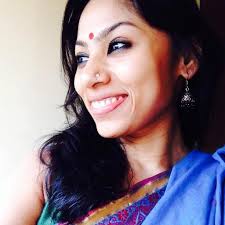

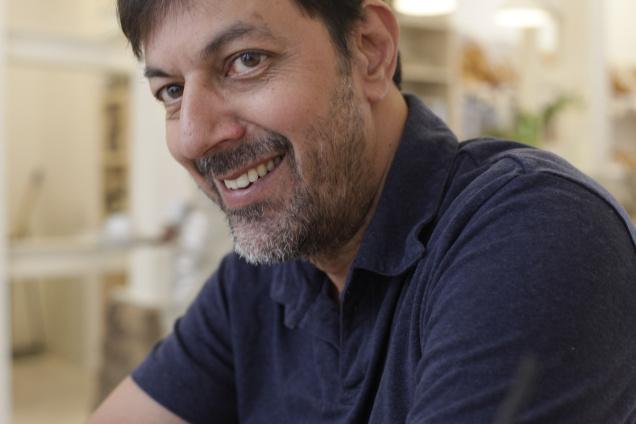
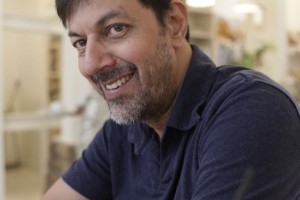


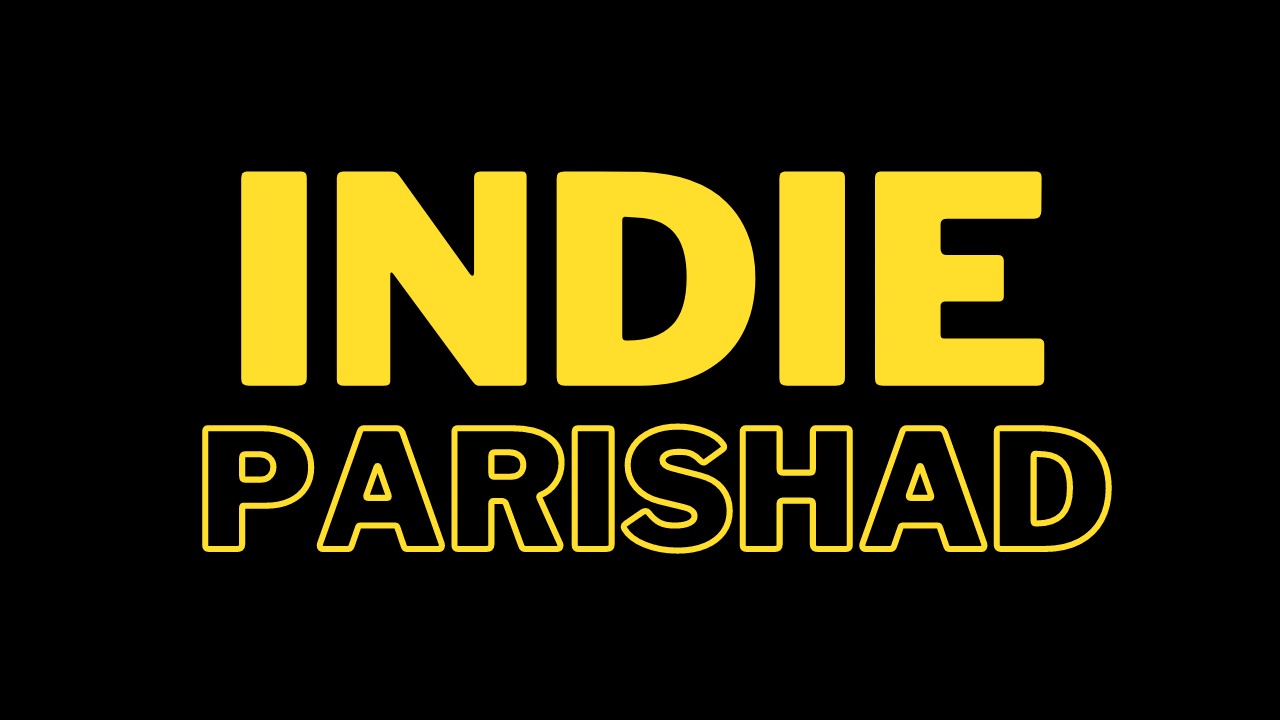
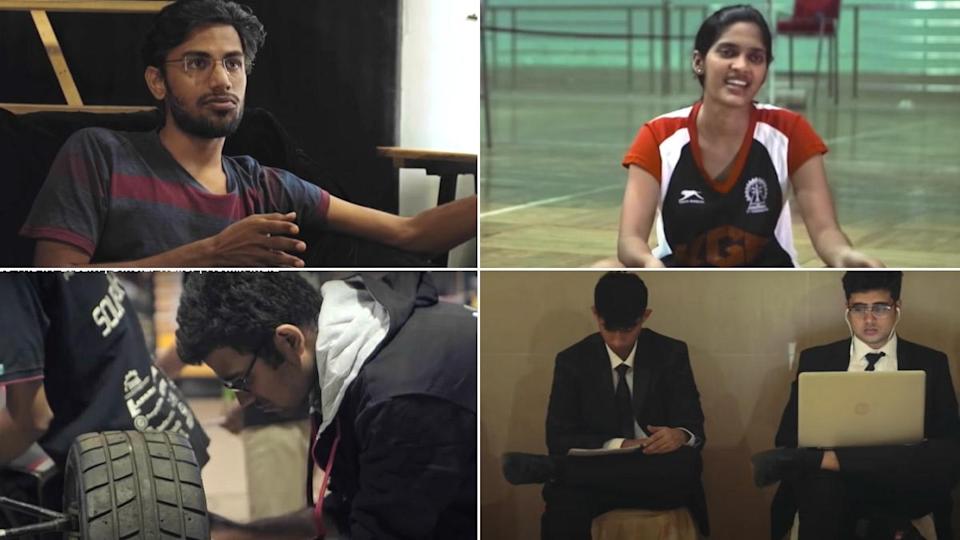
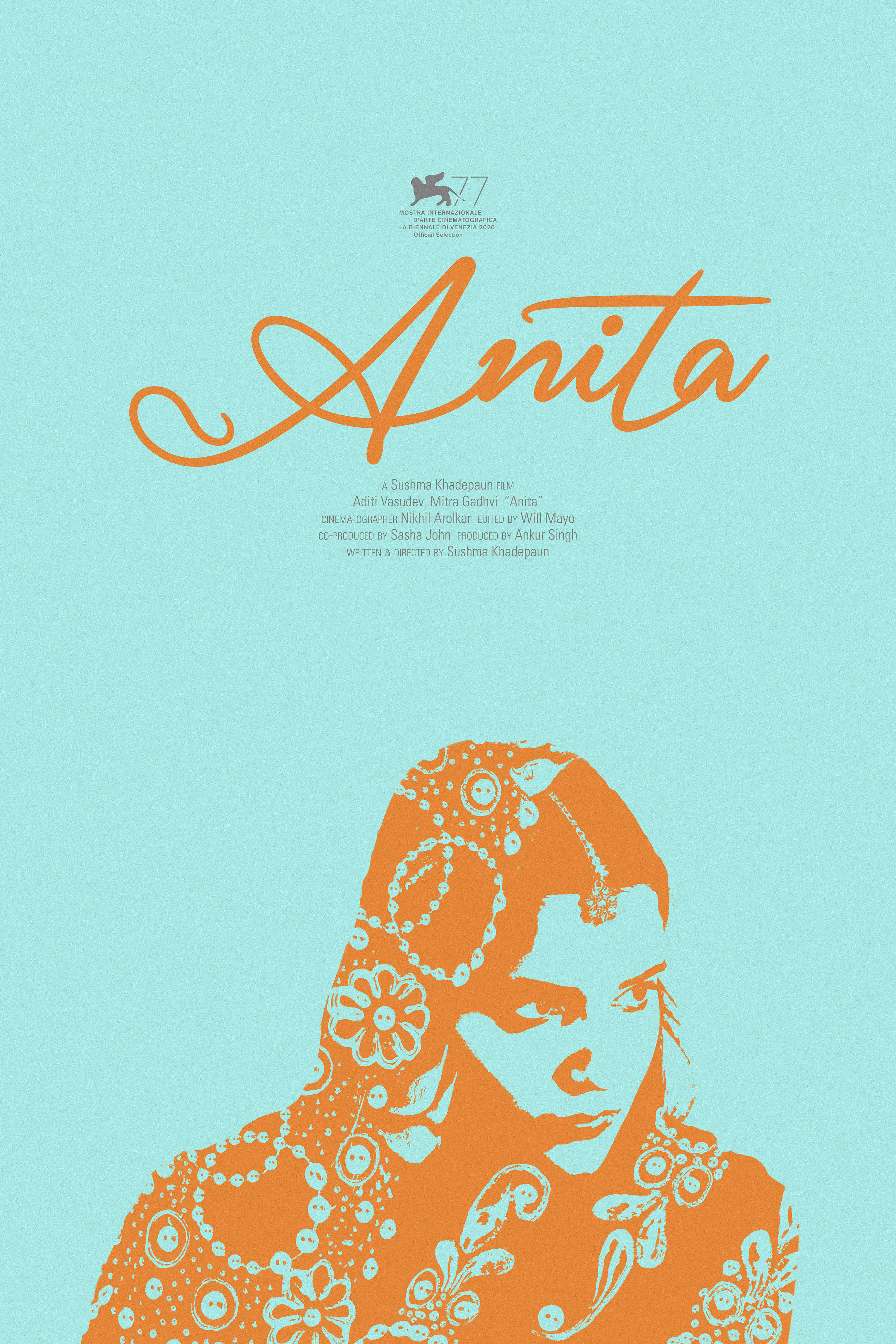
Leave A Comment
You must be logged in to post a comment.